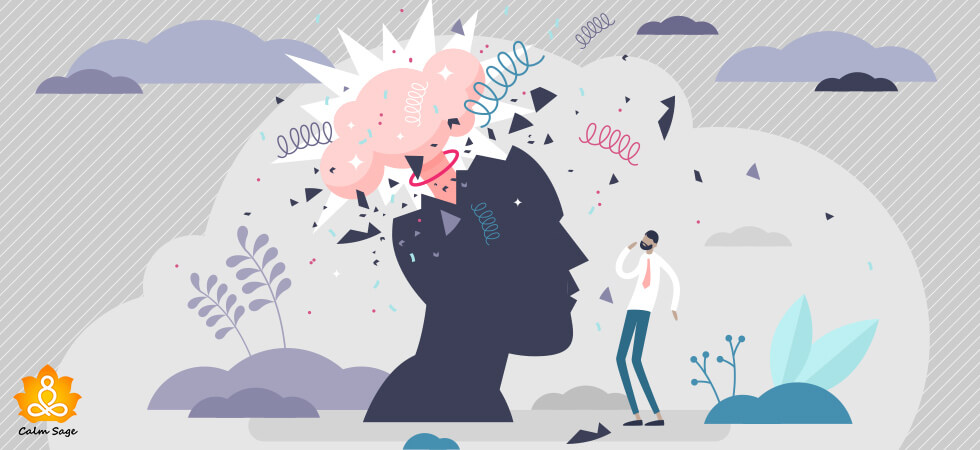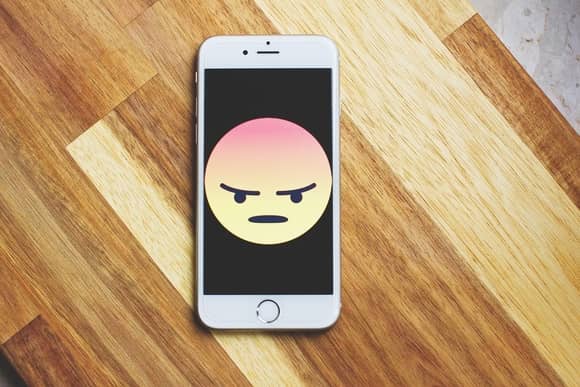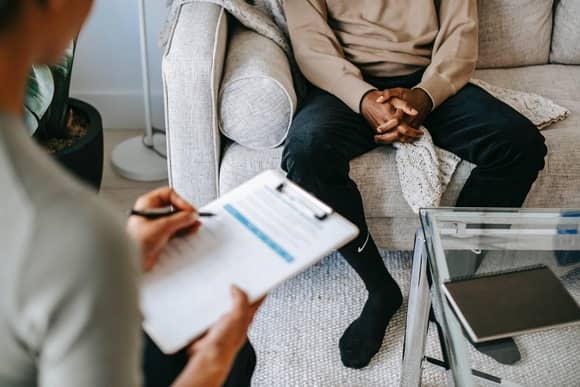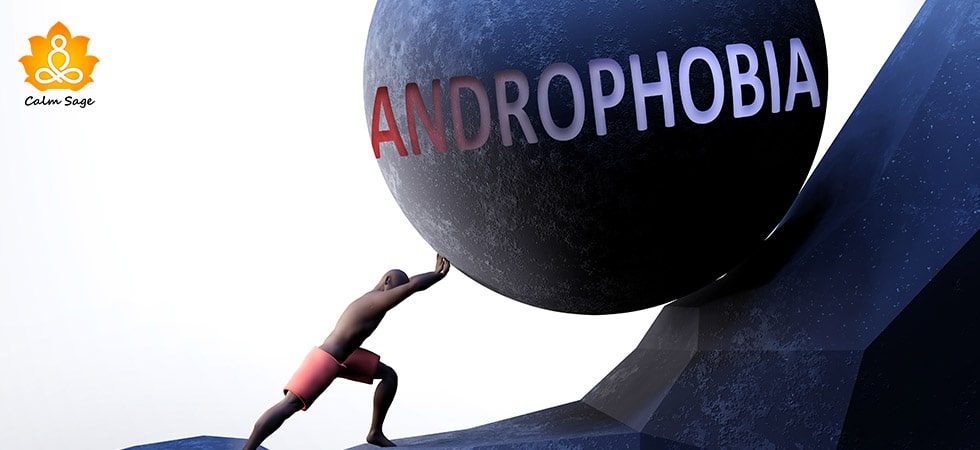An Overview Of Angrophobia: The Fear Of Anger Or Becoming Angry

Anger is a common emotion we feel almost daily. Whether it is because someone cut in front of us in a line or if we heard something unpleasant, anger is an emotion that sums it all up, right? But did you know that fear of anger is a common thing too?
Yes, and I’m not talking about fear of others becoming angry at you. No, I’m talking about the fear of anger or becoming angry yourself.
Some people have a better understanding and control over their anger but for someone struggling with angrophobia, or the fear of becoming angry, they are truly scared of getting angry because they have trouble understanding and controlling their anger.
In this article, I’ll be helping you understand what is angrophobia, or the fear of anger, what can be its symptoms, the potential causes, consequences, and how you can cope with the fear of becoming angry.
What Is Angrophobia Or The Fear Of Anger?
Angrophobia (ang-roh-phobia)*, the phobia of anger is more common than you might think. Uncontrolled anger can be not only unhealthy for you but also dangerous to people around you. This fear, the fear of anger or becoming angry does not mean phobia of people’s anger.
Angrophobia is an irrational fear of becoming angry. People who experience this phobia might not be able to cope with the stressors of day-to-day life. They always fear that their anger may be triggered if they are around angry people or thinking about anger.
This fear of anger can be intense so much so that it may cause them to experience panic attacks or isolate themselves from situations that may cause conflict.
*Not to be confused with agoraphobia, the fear of places and situations that may cause panic.
What Are The Symptoms of Angrophobia?

People struggling with this phobia of anger can experience high amounts of stress and anxiety when around others in an argument or a heated discussion. The fear of anger can also affect their relationship with others as they are often scared to voice their opinions in case others challenge their opinions.
Other than this, people with angrophobia may also feel anxious if they are around people who get easily angered. Please keep in mind that people struggling with angrophobia may not be able to understand and control their anger.
However, not all short-tempered people or aggressive people may have angrophobia. It also doesn’t mean that these individuals are weak or shy. They are likely aggressive but aware that they can’t control their anger.
Such fear and anxiety can keep them from being honest, share their opinions, taking constructive criticism, maintaining healthy relationships, etc.
Simply put, people with angrophobia, the phobia of anger, or becoming angry may have symptoms such as:
- Becoming passive and quiet in a conflicting situation
- Intentionally isolating themselves from others
- Avoiding social situations in case of a conflict
- Feeling anxious when around angry people
- Feeling anxious when thinking of anger
- Experiencing sweating, shaking, trembling when in a conflicting discussion
What Can Be The Causes?

While there is no concrete evidence of what causes this phobia of anger, it can be said that sometimes genetics may play a role. If someone in your family has a history of anger or anger-related disorders, it is likely you may develop this fear.
Even a previous traumatic experience can cause one to develop an irrational fear of anger or becoming angry. It is also highly likely that someone struggling with angrophobia may be diagnosed with a generalized anxiety disorder (GAD).
Your environment may also play a huge role in individuals developing angrophobia or the fear of anger.
Are There Any Complications?
As I’ve said before, anger is a common but strong emotion. It is not exactly avoidable, however, how we choose to express can mean everything.
Many people like to bottle up their emotions instead of accepting them and dealing with them head-on. Bottling up your anger can eventually turn inward causing you to develop the fear of anger or more likely its expression.
Remember, not healthily expressing your emotions can lead you to feel fear, anxiety, hopelessness, depression, and even guilt. Bottling up your emotions or repressing these feelings may even lead you to doubt or hate yourself.
With time, these inward-turned feelings may cause you to snap at your loved ones, unleash the pent-up frustrations on others or yourself in a destructive way.
How Do You Cope With The Fear Of Anger?

Angrophobia, the fear of getting angry, is rooted in your thoughts of anger. While there are no specific treatments for angrophobia, there are some treatments that can work to help an individual cope with their fear of becoming angry.
Treatments such as cognitive-behavioral therapy (CBT) can help understand the source of the fear and change the thought processes. It can also help you find easy solutions to cope with your phobia of anger.
Other treatments could be using MBSR or Mindfulness-Based Stress Reduction, Exposure therapy, meditation techniques, dialectical behavior therapy (DBT), yoga, deep breathing exercises, among changing lifestyle habits.
One of the most important parts of any treatment is psycho-education and awareness. Learning new anger management techniques and ways to express your feelings in an emotionally healthy way can help in coping with your fear of being angry.
Frequently Asked Questions (FAQs)
Q:1 How do I deal with my fear of anger?
You can deal with your fear of anger by using techniques such as deep breathing. When you breathe deeply, the sensations caused by the action can reduce your stress and calm your anxieties over the fear of getting angry.
Q:2 Is anger a symptom of fear?
Yes, fear leads to anger. Negative emotions including fear can trigger anger. An example of this can be; when you encounter a fearful situation, you may lash out with anger in response to the fear.
Q:3 Is anxiety repressed anger?
Repressed anger can be caused by the fear of being rejected or abandoned in the past for getting angry, being a perfectionist, or due to mental health conditions such as depression, anxiety, or post-traumatic stress disorder.
Q:4 Why do I suppress anger?
Many people suppress their anger as they fear abandonment while others may suppress their anger as they fear being undermined or being shamed. The anxiety of these reasons may cause you to suppress your anger. When you become habitual in suppressing your anger, it can eventually lead to you developing a phobia of anger.
Wrap Up
Coping with any kind of phobia can take time but with hard work from your side and your therapist, you can learn to conquer your fears and live a happy, healthy life.
You can connect with a licensed therapist or counselor by clicking here or you can even write to us at info@calmsage.com to get our assistance in helping you connect with a professional. Remember, asking for help is OK!
I hope with this article, you learned what is angrophobia, its symptoms, the complications it might bring, and how to treat this fear of anger or becoming angry. For more such content, you can follow us on our social media!
If you liked this article, please let us know in the comments below. We’re always happy to hear from you!
Take Care!




















